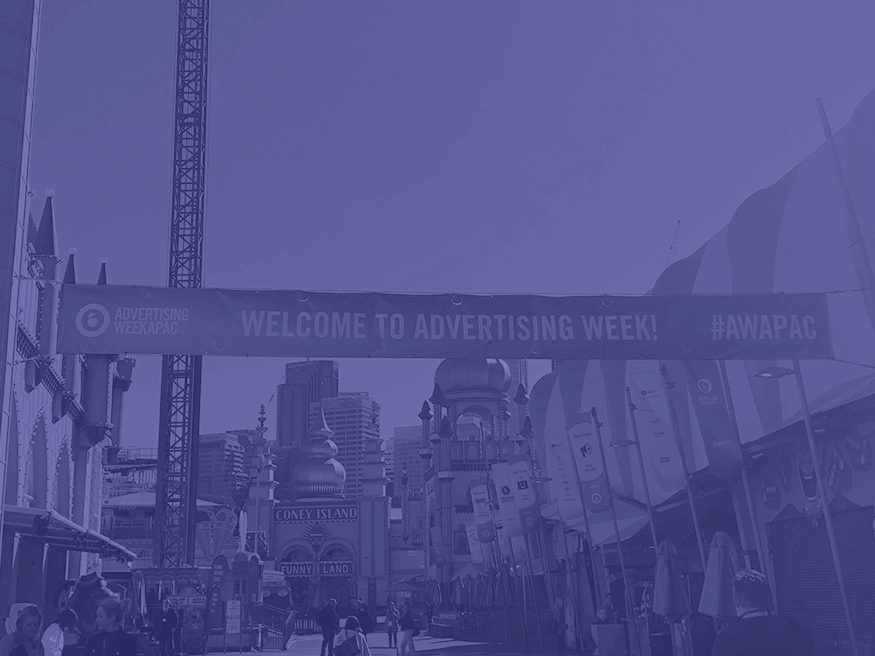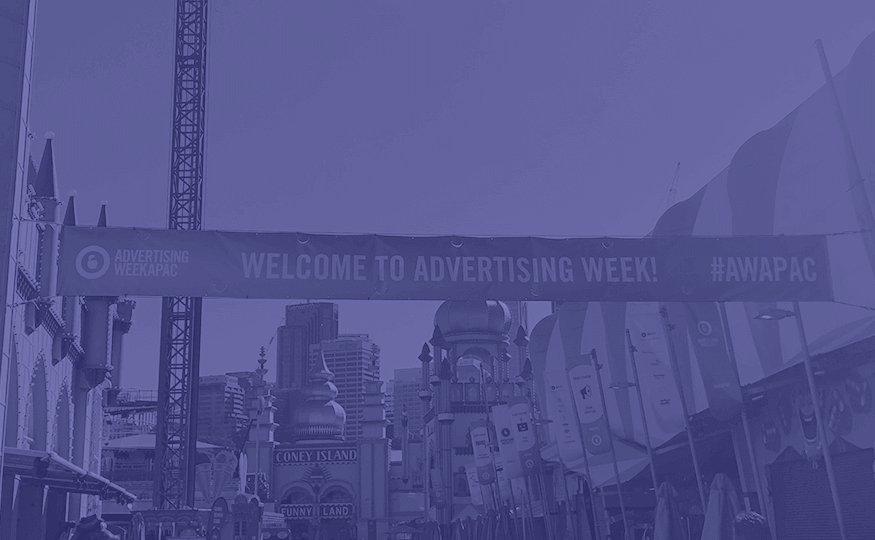At the second edition of Advertising Week APAC held in Sydney recently, renowned marketing consultant Mark Ritson’s keynote address on Let’s Look at Effective Branding was a resounding success. Ritson, an adjunct professor and industry commentator at Melbourne Business School, dived deep into 6,000 Effie-award-winning campaigns over the past 50 years and surfaced with evidence-based answers on what effective advertising & marketing campaigns are made of.
In this blog post, I whittle his talk down to the most interesting and useful learnings Ritson shared with the Aussie marketing community. We’ll start with some big questions centred on marketing campaigns and then proceed to share Ritson’s answers to each. Let’s roll!
If a brand uses more than one advertising channel, will this increase effectiveness?
Not surprisingly, Ritson’s research revealed that the more effective campaigns were ones with the multiple channels deployed. As you add more channels, there is a clear pattern of Effie scores improving.
The highest scoring number of channels were both 8 and 10 channels. Those with only 1 channel were the least effective.
Therefore, the question should not be TV vs. Facebook, but both, along with Google Search, outdoor and radio.
If marketers truly want to execute a successful campaign, multiple channels are needed to do so, providing you have the right amount of investment in each.
To strengthen his data, Ritson cited research from Analytic Partners gathered in 2016 that demonstrates clearly the incremental return on investment increase when you add additional platforms as well as a better reach.
The chart below illustrates this positive relationship between channel volumes and ROI.
Should the marketing campaign have more than one objective?
Yes. Brands should have two winning objectives for marketing campaigns, according to the research undertaken by Ritson and his team at Melbourne Business School.
Interestingly, these two objectives are not always business aspirations (e.g. reverse sales decline) or tactical goals (e.g. get 400k social mentions).
But they are almost always two strategic objectives (e.g. increase brand consideration) and they are S.M.A.R.T – specific, measurable, achievable, realistic and timely. With your research and S.M.A.R.T objectives completed; it is now possible to move on to the next phase – the tactics to achieve these objectives.
Is it important to focus on both performance marketing and brand building?
Ritson’s research shows that companies are getting shorter and shorter in their horizon and are irresponsibly too fixated on ROI.
He says marketers need to look at a longer perspective and invest in the brand. Though, he does add that performance is needed along with brand building.
His advice was: “There is no long without short. You need both. You need to get your short game going to fund the long game and 2 or 3 years in, you will start to see the wheel properly turning.”
What’s more important: The channel or creatives?
Next came the media vs. creative discussion. Pre 2010, most Effie winning submissions focussed on the creative execution of the campaigns, a few of them had a balanced representation (creative and media). Though again, in the last decade, this pattern has changed. The submissions over that last 10 years talked more about the channels rather than what is deployed within the channels.
This highlights the shift in the importance of media over creative.
Ritson said it’s more important to be concerned with what we are sending down these channels. “Is the work any good? Is the content good?”.
Ritson leans on Nielsen’s research to strengthen the importance of having a good creative to create an effective campaign. The research shown below illustrates that the creative execution contributes to 47% of the reason why someone purchased an item they saw advertised.
He adds: “We have forgotten this (the importance of good creative). We have become obsessed with channels”. He used the analogy that brands just look at the pipes now, without being concerned with what goes through the pipes. In order to increase effectiveness, what goes through these pipes should once again become a priority.
Does doing research make you more effective?
Yes, market research does indeed make you more effective by giving you a solid understanding of the market and the competition. Though he warned that it is possible to overdo research and digging around doesn’t necessarily increase effectiveness.
So what exactly counts as effective research? Ritson said that if marketers can answer the 4 questions below, then this is enough to complete a well-structured strategy and you can proceed on to the tactics.
The 4 essential questions your research should answer are:
- Whom are we targeting?
- What is our overall targeting position?
- What are our objectives?
- What is the brand’s architectural strategy?
Are long campaigns better than short?
Whilst the overall answer to this question is yes, it is not as simple as that. Ritson’s research revealed that campaigns that had a duration of 12-months or more were the most effective.
Les Binet and Peter Field discuss in great detail the relationship between short and long-term marketing strategies in their book: The Long and the Short of It. You can access this for free here.
Is mass marketing growing?
The answer was yes. Data from the 6,000 Effie-winning campaigns showed that a large percentage of the winners over the past 50 years all implemented a target market approach using the segment target position (STP) ideology.
However, over the past decade, there has been an interesting change.
In 2017, nearly 30% of Effie award winners used a mass marketing strategy, this is up by 1,000% compared to 2011.
The increase in mass marketing came around after the release of the Byron Sharp book: How Brands Grow: What Marketers Don’t Know published in 2011. The book discusses how we sent mass marketing to a premature grave, when in reality it had much to offer.
Ritson analysed the data by splitting the total award Effie submissions into two groups.
- Group 1: Those that executed a sophisticated mass marketing approach
- Group 2: Those with a focussed target segmentation approach
The data revealed that award submissions that executed a sophisticated mass marketing strategy had a higher scoring mark over the campaign submissions that focussed on a target market. Therefore, mass marketing is more effective. “It should indeed be back on your radar,” Ritson said.
Ritson then emphasised on the importance of the latest work from Binet and Field IPA data (that is not yet complete). The data so far gathered by Binet and Field indicates that existing customer segments deliver the best return when executing short term performance. Therefore, targeting does indeed have an important place.
Though, when you look at the long-term (the brand building), the IPA insights revealed that mass marketing is by far the superior approach.
Ritson observed, “It isn’t a question of mass marketing vs. targeting, but a question of how you combine the two together to achieve both of your objectives.”
He went on to use the Dove – Real beauty campaign as a case study to illustrate the importance of using both approaches:
Dove’s long-term, mass marketing, brand building strategy helped develop emotional connections and cultural resonance across the globe. But the other half of the money spent on the Dove campaign was standard category-based advertising and all about the mental availability, which are classic old school advertising tactics.
The Dove campaign succeeded using the long and the short – it was mass and it was targeted.
Does differentiation play a role?
At the moment we are very lost in what the answer is, Ritson admits, but his data reveals that differentiation does in fact pay — Effie award submissions with high differentiation had the highest scoring submissions. Therefore, it does increase effectiveness.
Ritson recommends that differentiation should still exist within your marketing strategies.
Does agency marriage work?
The final insight from the Effie award submissions revealed that agency marriage does work. In fact, the winning model for success is 3 agencies. Any more, decreases your effectiveness (although, having 4 was still better than only having 1).
Therefore, don’t be hesitant in a having a creative only agency, a digital advertising only agency and a traditional media planning/buying agency.
I hope this blog provides you with all the ingredients you need to be mindful of to help your brand reach an Effie winning standard! To know how Reef can assist you in creating a competitive advantage online, please do reach out.

